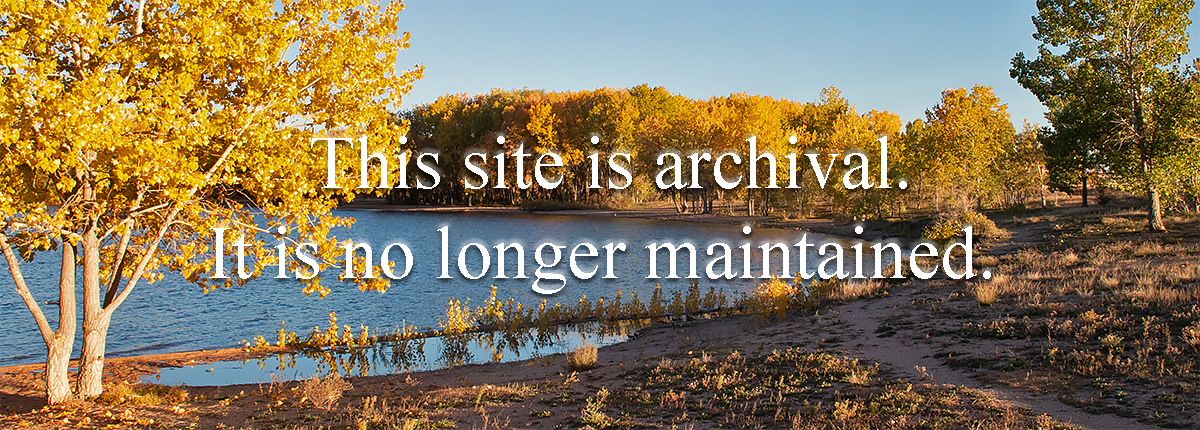Denver Audubon’s Suit
(updated 10/11/18)
On October 8, 2014, the Audubon Society of Greater Denver (Denver Audubon) filed a complaint against the US Army Corps of Engineers to protect Chatfield State Park from the massive environmental damage that the Chatfield Storage Reallocation Project would do to the Park.
“Unfortunately the Corps of Engineers selected the most environmentally damaging alternative for the Chatfield project. It’s a bad deal for the public and for Colorado,” said Polly Reetz, Conservation Chairman of Denver Audubon.
“The Corps of Engineers’ approved plan will provide only a highly unreliable water supply yet will cause substantial environmental damage to Chatfield State Park, one of the State’s most heavily used and biologically diverse State Parks,” Reetz noted.
“Colorado will lose cottonwood forests, wetlands, and free-flowing streams heavily used by recreationists and essential for wildlife, including the threatened Preble’s meadow jumping mouse. In return we get acres and acres of barren mud flats, for what the Corps determined to be ‘0’ dependable yield – the amount of water the project could reliably provide,” she said.
Colorado Parks and Wildlife concluded that the reservoir fluctuations could increase up to 17 vertical feet and the park would lose 587 acres of wildlife habitat and recreational land. The Corps estimated that the reservoir would fill only 2 or 3 years out of 10. The project has been touted as environmental restoration for the South Platte in Denver but the Corps’ own studies show that the river’s flows would decrease 9 months out of 12 and increase only one month out of 12.
Chatfield State Park hosts over 1.6 million visitors a year, with opportunities for a wide variety of recreational activities, including boating, fishing, camping, hot-air balloon rides, horseback rides, hiking, trail running, bird-watching, nature photography, bike riding, and scuba diving. It also provides a great diversity of wildlife habitats that support 375 species of birds, said Reetz, and has been designated an Important Bird Area by the National Audubon Society.
Denver Audubon proposes sound, attainable alternatives such as increased water conservation, storing water underground, use of gravel pits like the one at C-470 and Santa Fe, and storage in Rueter-Hess reservoir, which has excess storage capacity.
Denver Audubon says the Corps dismissed a number of alternatives that would do less environmental damage. The Corps also failed to provide the public with crucial information regarding water rights to be stored in Chatfield reservoir and provided their estimate of the dependable water yield of the project – zero – only in an obscure appendix. Many of the water providers who originally joined the project have dropped out, clearly indicating that there are viable alternatives for meeting future water needs.
“We do need to augment our water supplies, but we need to do it in a smart way, without destroying the outdoor recreation and wildlife resources so important to Colorado residents. Water conservation must be the foundation for meeting future water needs,” Reetz said
